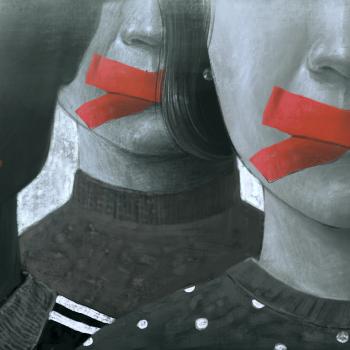Connor Wood
If you’re an American under thirty with a college education (or are getting one), there’s a decent chance that you’re a fan of Bernie Sanders. The gruff Vermonter has been galvanizing Democratic enthusiasm with his fiery promises to take on big banks, socialize healthcare, and make college education free. Sanders’ vision of America is much closer to the democratic socialism of Denmark than to traditional American individualism. This inspiring vision also evokes an age-old problem: how to motivate collective action. Sanders envisions significant contributions from every American going into a collective pot, which in turn provides universal services. Research has shown us, though, that in order for such immense collective investment to work, people need to feel emotional buy-in – not just to the practical benefits they’ll be getting, but to the collective itself as an ideal. Hence, the people who want the United States to unify and follow the democratic socialist vision should be the most patriotic of all. But they’re not – and that’s a problem.
It’s no secret that the age groups most likely to support Sanders – especially Millennials – are less patriotic, on average, than the generations before them. But this trend extends to the local level, too. Among my Facebook friends, the most vocal supporters of Bernie Sanders are disproportionately those who are are quick to re-share any link that contains something highly critical of the United States: imperialism, economic injustice, ‘Murica memes. Meanwhile, the folks who post nice things about America are a completely different set of people. There’s not a lot of overlap.
Sure, this is anecdotal, but I think it’s diagnostic. Sanders is explicitly running as an anti-establishment candidate,* which means that he’s attracting people who (quite reasonably) feel discouraged and upset by the way things are. And since the Establishment is inextricable, in many people’s minds, from classic symbols of Americanness like the flag or the national anthem, the most disenchanted people naturally feel skeeved out by those very symbols. The logic looks like this:
Premise 1: Patriotic expressions support the status quo.
Premise 2: The status quo is evil.
Conclusion: Patriotic expressions are bad news.
But like so many of the syllogisms we base our lives on, this one has problems. Patriotic expressions aren’t supposed to mean unqualified support for the status quo. They’re supposed to be engines for producing social consensus. When you look at a flag, no one is forcing you think only of bad things, like Vietnamese napalm bombings and soaring economic inequality. Those are factual entries in the American history books, yes. And they are very bad. Über-bad. But national symbols are about ideals. And ideals are useful things. They motivate sacrifice, and inspire a willingness to contribute to the collective.
Hmmm…sounds like exactly what Sanders supporters would need if they wanted, say, to get 330 million people onboard for a huge shared investment that would require tons of across-the-board buy-in. But right now, it seems that the people who want the highest level of shared collective investment are, paradoxically, the very same people who most dislike those symbols. This is a problem.
Asabiya: Arabic for getting it done, together
Cultural evolution researcher Peter Turchin uses an Arabic term, asabiya, to refer to the collective loyalty and willingness to cooperate for the common good that characterizes successful nations. If a tribe has asabiya, its members will be willing to step in and make sacrifices to keep things going. Such a tribe stands a good chance of surviving when trouble strikes. But if a tribe doesn’t have asabiya, its members will only feel loyalty because they’re getting something from it. This tribe will be in a pretty rough position when its luck turns – its members will abandon it.
So in order to survive, countries need to evoke affective – that is, emotional – loyalty. They need asabiya. As moral psychologist Jonathan Haidt has written extensively, humans aren’t purely rational creatures. We don’t make decisions based on detached cost-benefit analyses, no matter how much economists insist that we do. We’re emotional animals. And thanks to millennia of evolution, we’re capable of feeling emotional commitments not only to other individuals, but to groups.
In fact, if you’re looking for a single feature of humanity that most distinguishes us from other apes, our emotional “groupishness” would be a good candidate. Chimpanzees live in groups, but humans symbolize our tribes. We rally around our flags, national anthems, religious totems. These are the tools that make our commitments seem real, that forge collective identities rich with asabiya.
This is species-typical behavior. Humans do this all around the world. For the United States, it’s the bald eagle, images of mountains and prairie, or Lady Liberty. For Great Britain it’s Queen Elizabeth, the hills of the Lake District, or the age-old customs of afternoon tea and feeling insecure about social class. Of course, these aren’t exhaustive lists – in fact, a person’s loyalty to her country usually emerges from a whole bundle of associations and symbols.
The key point is, the more positive a person feels about these symbols, the more willing she’ll probably be to make sacrifices for the nation or tribe. It’s like a wedding ring. A guy who takes his wedding band off before he goes out to a bar while on a business trip is probably not going to take his wedding vows that seriously. On the other hand, a person who feels strongly about his wedding ring is more likely to abide by the commitments it symbolizes. In other words, there is a nontrivial connection between 1:) a person’s affective response to a symbol and 2:) that person’s likelihood of following through on the social obligations that symbol refers to.
That is, symbols matter. They provide real information about which relationships we’re committed to and which ones we’re indifferent toward.
Got it? Good.
And so symbols of patriotism are actually crucial, practically speaking, when it comes to mustering popular support for big, collective efforts. If you want to get an entire country to rally behind a big new project, you need to inspire some sense of positive emotional commitment, not just to the project, but to the collective, the tribe itself. People need to feel like they are contributing to their extended family when they pitch in for the nation.
This is hundreds of thousands of years of evolution talking. You want lots of collective investment in the tribe? Then you need a tight and cohesive tribe. You want a tight and cohesive tribe? You need serious, committed investment in the symbols of the tribe, so that other people can see that you mean business. If those symbols seem contaminated by bad associations, like war or imperialism, then start using them differently. Take back the symbols of patriotism from the jingoes. We’re symbol-using animals. That’s how it works.
I’m not arguing for or against Bernie Sanders’s vision. My point is about the semiotics of civic life. If you support Sanders, great – but if you want massive collective investment in and benefits from the United States, then you’d darn well better learn how to wield the symbols of America effectively, without cynicism. Otherwise, you’re asking the tribe to provide benefits without demonstrating that you’re committed all-in. And in the ancestral past, that was a losing strategy. And by “ancestral past,” I mean right up to last week. So don’t be too cool to be a patriot – especially if you’re asking the country to make a huge collective investment. Trust me: you’ll be glad you learned to be a symbol-user.
_____
* It’s funny how often this works in the United States. It makes you wonder – if everyone is anti-establishment, where is the establishment, anyway? Behind the couch? Topeka?












